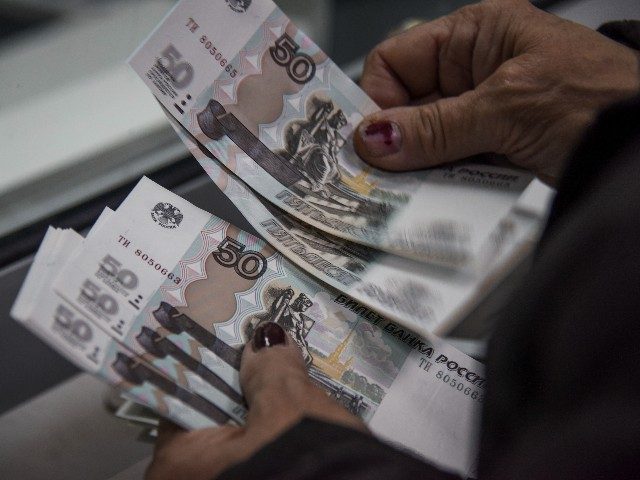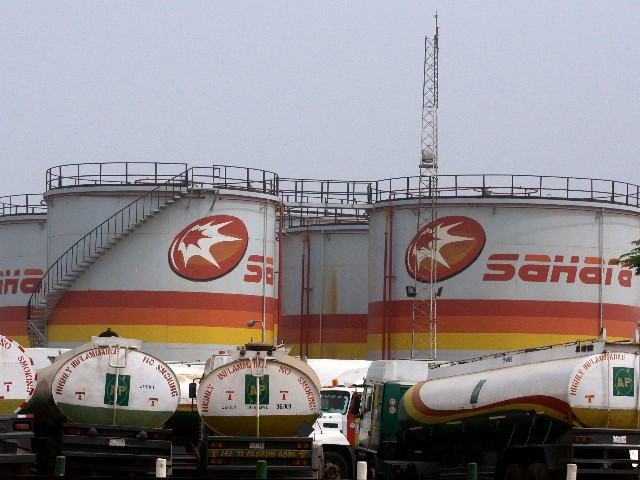Nigeria will consider conducting trade with Russia in national currencies, i.e., in Russian rubles, “if necessary,” Nigerian Ambassador to Moscow Abdullahi Shehu told Russia’s state-owned Sputnik news agency on Thursday.
Asked by Sputnik on March 31 about “the possibility of turning the trade between Russia and Nigeria into ruble[s],” Ambassador Shehu stated, “It depends. … The financial experts will work out the modality of how that will be done. … We will wait and see. We welcome them [negotiations on trading in rubles], we will negotiate.”
Shehu referred to Moscow’s request on March 23 that certain nations pay for Russian gas in rubles instead of in foreign currencies such as euros or dollars. The Kremlin made the request specifically of countries that have imposed financial sanctions on Russia since February 24 in retaliation for its launching of a war in Ukraine earlier that same day.
Kremlin spokesman Dmitry Peskov clarified on March 30 that Moscow “would not be seeking gas payments in rubles immediately, saying instead that this switch is likely to be a ‘gradual process,'” CNBC reported.
Sputnik asked Ambassador Shehu on March 30 about his thoughts on Russia potentially being paid for its gas in rubles.
Shehu said the change “is dictated by Russia’s national policy, and no one has the right to challenge it.”
“[T]he rejection of the dollar and the euro in the future can strengthen the ruble and make it a freely convertible currency,” Sputnik further paraphrased the ambassador as saying.
On Thursday, Shehu also expressed his government’s interest in selling increased gasoline stores from Nigeria, Africa’s largest crude oil producer, to outside markets such as Russia and Europe.
“When asked about prospects for EU [European Union] countries to find a replacement for gas from Russia, Shehu said that Nigeria is ready to sell its gas to any countries where there will be a demand for it,” Sputnik relayed.
“He [Shehu] added that the extraction of mineral resources is one of the areas where Nigeria and Russia can enhance their cooperation, emphasizing that apart from oil and gas, Nigeria has also coal, bauxite, columbite, and iron ore natural reserves,” according to the Russian state media outlet.
Abuja’s offer on Thursday to provide extra supplies of Nigerian gasoline to foreign markets seems dubious given recent reports Nigeria’s government has failed to secure a sufficient flow of oil and gas to its domestic population. Nigeria’s government has severely mismanaged the nation’s naturally abundant source of crude oil, resulting in paradoxical fuel shortages in recent weeks.
Nigeria’s latest fuel shortage is especially alarming considering the nation is a member of OPEC, the Organization of the Petroleum Exporting Countries. Nigeria experienced a related collapse of its state power grid in mid-February that caused blackouts nationwide.
“Nigerians have been experiencing power cuts for weeks amid a surge in fuel and diesel prices,” Nigeria’s TheCable news website reported on February 14.
The news outlet revealed that Nigeria’s state power grid is infamous within the country for its repeated failures.
Detailing previous electricity outages, TheCable recalled:
Nigeria’s national grid is known for experiencing disruptions. It collapsed in February, May, July, and August 2021.
TheCable had reported that the grid experienced 206 collapses between 2010 and 2019.
A breakdown of the data showed that Nigeria witnessed 146 total collapses of the national grid and 73 partial collapses between the period.
Nigeria’s energy woes serve to compound its general insecurity, which has seemingly grown worse in recent weeks. The West African nation experienced a spate of terror incidents across the states of Niger, Kaduna, and the national capital region of Abuja from March 26 to March 28. The deadly attacks included the targeting of the major Abuja-Kaduna rail line (March 28); an attack on a Christian village in Niger state, including the local priest (March 27); and an attack on the Kaduna airport (March 26).


COMMENTS
Please let us know if you're having issues with commenting.